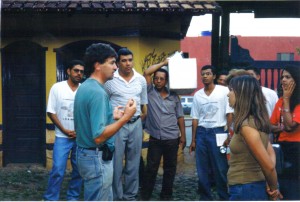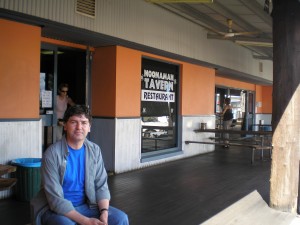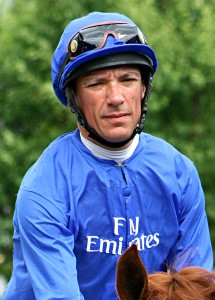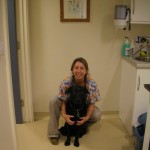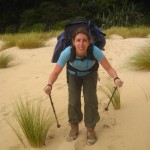RESEARCH
Hany Elsheikha
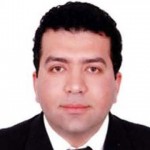 Hany Elsheikha is an Associate Professor in Veterinary Parasitology at the University of Nottingham
Hany Elsheikha is an Associate Professor in Veterinary Parasitology at the University of Nottingham
He joined School of Veterinary Medicine and Science as a Lecturer in 2007 where he established the Parasitology curriculum from its inception.
He has over 20 years’ experience in the field of Parasitology education and research.
He earned his PhD from Michigan State University, Department of Large Animal Clinical Sciences, 2004, entitled – Molecular Epidemiology and Evolution of Sarcocystis neurona-Agent of equine protozoal myeloencephalitis.
In 2005, he was awarded the American Society for Microbiology (ASM)/National Center for Infectious Diseases (NCID) Postdoctoral Fellowship.
He is the author of more than 170 research papers and professional articles on parasite pathobiology, diagnosis and control.
Also, he is the author of one US patent and two textbooks: “Essentials of Veterinary Parasitology” and “Self Assessment Colour Review Veterinary Parasitology”.
He is a Diplomat of the European Veterinary Parasitology College (EVPC), a member of The European Scientific Counsel for Companion Animal Parasites (ESCCAP UK & Ireland), a Fellow of the Royal Society of Public Health (RSPH), and a Fellow of the Higher Education Academy (HEA).
From 2014 to 2015 Hany has been the inaugural Specialty Chief Editor of Parasitology in the open-access journal Frontiers in Veterinary Science. Also, he serves on the Editorial Board of five peer-reviewed journals and Ad hoc Reviewer of several journals and funding agencies.
His current research focuses on host-parasite interaction and anti-parasitic drug discovery, with particular focus on opportunistic infections.
Dr. Bruce Alexander – In Memory
Dr. Bruce Alexander graduated from Edinburgh University in 1979 with a B.Sc. degree in Biological Sciences (Honours in Zoology). After obtaining an M.Sc. in Applied Entomology from Imperial College at Silwood Park and spells with the Smithsonian Tropical Research Institute in Panama, Natural History Museum and Liverpool School of Tropical Medicine, Bruce moved to the US to do a Ph.D at the University of Florida in Gainesville. His research topic was on the ecology of phlebotomine sand flies in Colombia, the start of a long association with that country and the study of these insects, vectors of human leishmaniasis.
After graduating from UF, Bruce made two extended visits to Ecuador as part of a Japanese-Ecuadorian study on leishmaniasis. He then returned to Colombia as head of the Medical Entomology Unit of Fundacion CIDEIM, a research institute in Cali. During this time Bruce developed an interest in practical, sustainable solutions to the control of insect-borne disease. His work involved field studies all over Colombia and in 1994 he was recognised by the country’s main science and technology funding body as one of its 150 most influential scientists. Two years later Bruce moved to Belo Horizonte, Brazil where he was a visiting lecturer and researcher at the Federal University of Minas Gerais and the Centro de Pesquisas Rene Rachou. While in Brazil he carried out research on the urbanisation of visceral leishmaniasis and was a member of the Expert Committee for the control of dengue fever when this disease began to be a serious public health problem in 1998.
In 2002 Bruce returned to the UK and was a Senior Research Fellow at the Liverpool School of Tropical Medicine for three years, working on a study of visceral leishmaniasis in Northeastern Brazil. He was also involved in the first study of leishmaniasis ever carried out in Australia.
Bruce remained interested in practical control methods for insect-borne disease and in 2005 set up Xeroshield, a Roslin-based SME established to develop a new insecticidal textile for use on mosquito nets as a malaria control technology. In partnership with researchers from Leeds University, Xeroshield was the first Scottish company to obtain a grant from the Bill & Melinda Gates Foundation for this technology, which is currently undergoing field trials in West Africa.
Bruce first became aware of Lyme disease as a student in Florida in the 1980s, when the disease was first formally identified. However it was not until his return to Scotland that he became fully aware of the extent of the problem here. Believing that Lyme disease was a condition that could be easily prevented if people were given the means to protect themselves together with the most rapid access to diagnosis and treatment possible, he began the development of a new technology with Xeroshield in 2012.
In 2015 he set up a separate company (Garrapat Ltd.) to focus exclusively on ticks and Lyme disease, based on this technology and the promotion of awareness among the general public and medical practitioners.
As well as his business and research interests, Bruce is the author of 56 scientific publications and has translated over 200 more for other researchers from Spanish or Portuguese to English. He now lives in Penicuik, Midlothian with his wife Cristina and son Patrick.
MEDICINE
Dr John Lambert
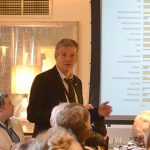 Consultant in Adult and Paediatric Infectious Diseases, Mater Hospital Dublin and UCD School of Medicine.
Consultant in Adult and Paediatric Infectious Diseases, Mater Hospital Dublin and UCD School of Medicine.
Dr Lambert, originally Scottish born and educated, graduated from Medical School in Michigan USA and qualified in Infectious Diseases in New York. He was on faculty at Johns Hopkins University and the University of Maryland in Baltimore 1993 to 1999, and then spent five years in London working at the Great Ormond Children’s Hospital and Kings College before taking up a Consultant position in Infectious Diseases and Medicine in Dublin.
Dr Lambert has experience in Lyme management during his time in America, and was involved in the Data Safety and Monitoring Board of a Lyme Vaccine in the 1990’s while at John Hopkins. In the last three years he has taken on a number of patients with ‘chronic fatigue’ and ‘fibromyalgia’ where infectious explanations for these syndromes were not considered, or were dismissed. In finding infection in many of these cases he has also found good responses to appropriate treatment.
SPORTS CELEBRITY
Frankie Dettori, MBE, is a true champion and a living legend within the sport of horseracing.
Having ridden winners in every major racing country around the world, he made history at Ascot on 28th September 1996, when he rode every winner on the seven race card for his very own ‘Magnificent Seven’.
He has now ridden over 2,000 winners and has expanded his career to the small screen, having made many appearances on television, including Co-hosting BBC’s ‘A Question of Sport’.
He lives in Newmarket, Suffolk with his wife Catherine and their five children Leo, Ella, Mia, Tallulah and Rocco.
In recognition of his outstanding services to horseracing, Frankie was appointed MBE in 2001.
He has been recognised for his achievements with prestigious awards of merit from Cartier, and his own peers.
Frankie is a supreme sportsman with a great attitude, making him a seriously successful ambassador for the sport of horseracing and horse welfare.
VETERINARY
Sarah Bignell-Howse, BVetMed, MRCVS, GP(Cert SAM) is a Veterinary Surgeon based in Kent, UK.
Sarah graduated as a Veterinary Surgeon from the Royal Veterinary College in the year 2000 with an interest in Wild Animal Health and Conservation. She undertook further studies to become a Certified Small Animal Practitioner a few years later after developing a passion for small animal medicine.
Her interest in infectious disease took an interesting turn when Sarah herself was diagnosed with several tick borne infections in 2011.
As she continues her recovery she has been featured in several newspapers and appeared on television with the aim to raise awareness and help prevent other people having to embark on this journey.
Sarah lives with her husband Nic, her two step children, dog and cat.
Despite the challenges that she has faced over the last few years, Sarah remains resilient, positive and determined to help others.


